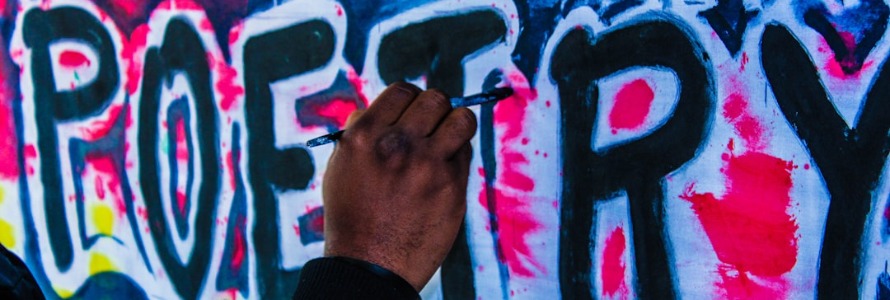
I have always been fascinated by the profound depth and lyrical beauty of poetry. When I embarked on a journey to explore African poetry, I discovered an incredible tapestry of voices, histories, and emotions that illuminated a continent’s soul. African poetry is more than art; it is a reflection of cultural identity, resistance, and resilience. This journey into African verse enriched my understanding of humanity and the power of words to transcend boundaries.
The Rich Heritage of African Poetry
African poetry spans a vast temporal and geographical landscape, from the oral traditions of ancient African societies to contemporary works by globally celebrated poets. This rich literary heritage reflects the diversity of the continent, encompassing languages, histories, and perspectives. Through African poetry, I found myself traveling through time, from the epic chants of the griots to the politically charged verses of the modern era.

The Power of Oral Traditions
The oral tradition is a cornerstone of African poetry. For centuries, African communities have relied on storytelling, songs, and chants to convey history, morals, and cultural values. In many ways, these oral performances are the ancestors of African poetry. They are deeply rooted in the everyday lives of people, often accompanied by music and dance, creating an immersive experience.
One prominent example is the griot tradition of West Africa. Griots are oral historians, poets, and musicians who serve as cultural custodians. Their performances are not merely entertainment; they preserve the genealogies, legends, and wisdom of their communities. Through their chants, I sensed the unbroken thread of African storytelling and its profound impact on later written forms of poetry.
The Influence of Colonialism
Colonialism had a transformative and often devastating impact on African societies, and its echoes resonate deeply in African poetry. Poets from the colonial and postcolonial periods often grapple with themes of identity, resistance, and liberation. For example, I encountered the works of Leopold Sédar Senghor, a Senegalese poet and one of the founders of the Négritude movement. His poetry celebrates African culture while critiquing colonial oppression. In his poem “Prayer to the Masks,” Senghor merges pride in African heritage with a longing for cultural rejuvenation.
Similarly, Chinua Achebe’s poetry reflects on the scars left by colonialism. His verses in collections like Beware, Soul Brother blend traditional Igbo imagery with critiques of modernity and colonization. Reading Achebe’s poetry was a poignant reminder of how deeply colonialism disrupted the cultural and social fabric of African societies.

The Themes and Styles of African Poetry
African poetry is incredibly diverse, both in terms of themes and styles. Yet, there are common threads that weave through this literary form—themes of identity, resistance, spirituality, and the natural world.
Identity and Belonging
One of the most striking aspects of African poetry is its exploration of identity. Many poets use their work to affirm their cultural roots while navigating the complexities of a globalized world. In contemporary African poetry, themes of diasporic identity are particularly prominent. Writers such as Warsan Shire, a Somali-British poet, use their poetry to grapple with the dualities of belonging and exile. Shire’s poem “Home” is a visceral depiction of displacement and the refugee experience: “no one leaves home unless / home is the mouth of a shark.”
Resistance and Liberation
Resistance is a recurring motif in African poetry. During the struggles for independence in the 20th century, poets used their verses as tools of protest. South African poet Dennis Brutus, known for his activism against apartheid, wrote searing poetry that condemned racial injustice. His collection Sirens, Knuckles, Boots resonated deeply with me as it captured the pain and defiance of those fighting systemic oppression.
The liberation theme is also evident in contemporary works. Kenyan poet Shailja Patel’s Migritude is a powerful exploration of colonial legacies, gender, and migration. Through her evocative language, Patel bridges personal and political histories, illustrating how African poetry continues to be a site of resistance and transformation.
Spirituality and Connection to Nature
Many African poets draw inspiration from spirituality and the natural world. These themes often reflect the interconnectedness of human life with the environment. Nigerian poet Christopher Okigbo, in his collection Labyrinths, weaves spiritual imagery with reflections on personal and communal identity. His poem “Heavensgate” evokes a sense of transcendence and communion with nature.
Similarly, I found a deep connection to nature in the works of Malawian poet Frank Chipasula. His poetry, often suffused with imagery of rivers, forests, and wildlife, underscores the profound respect many African cultures have for the natural world. This relationship between humanity and the environment is a reminder of the need for ecological harmony.

Contemporary African Poetry: A Global Stage
Today, African poetry is thriving on the global stage. Poets from the continent and its diaspora are gaining recognition for their unique voices and perspectives. The internet and social media have played a significant role in amplifying African poetry, making it accessible to a worldwide audience.
The Rise of Slam Poetry and Spoken Word
Slam poetry and spoken word have emerged as vibrant forms of expression in contemporary African poetry. These genres combine the oral traditions of African cultures with modern performance art. South African poet Koleka Putuma is a leading voice in this movement. Her collection Collective Amnesia explores themes of race, gender, and queer identity with unflinching honesty. Watching Putuma perform her poetry, I was struck by the raw emotion and power of her words.
African Poetry in the Digital Age
The digital age has ushered in a new era for African poetry. Online platforms and literary festivals provide spaces for poets to share their work and connect with global audiences. Initiatives like the African Poetry Book Fund, founded by Kwame Dawes, support the publication and dissemination of African poetry. These efforts ensure that the rich voices of African poets continue to reach and inspire readers worldwide.
My Personal Reflections
Exploring African poetry has been a transformative experience for me. It has deepened my appreciation for the diversity of human expression and the ways in which poetry can serve as a mirror to society. Through the verses of African poets, I have felt the weight of history, the urgency of resistance, and the beauty of cultural heritage.
One of the most valuable lessons I’ve learned is the universality of poetry. Despite differences in language, geography, and culture, the emotions and themes expressed in African poetry resonate deeply. They remind me that we are all connected through our shared humanity.
Conclusion
African poetry is a treasure trove of literary brilliance that deserves to be celebrated and explored. From ancient oral traditions to contemporary digital platforms, it captures the essence of a continent’s spirit. Whether you are drawn to its themes of identity, resistance, or spirituality, African poetry offers something profound for every reader. I encourage anyone with a love for literature to embark on this literary journey and discover the beauty and power of African poetry.
References
Achebe, C. (1971). Beware, Soul Brother and Other Poems. Heinemann.
Brutus, D. (1963). Sirens, Knuckles, Boots. Mbari Publications.
Okigbo, C. (1971). Labyrinths. Heinemann.
Patel, S. (2010). Migritude. Kaya Press.
Putuma, K. (2017). Collective Amnesia. uHlanga.
Senghor, L. S. (1948). “Prayer to the Masks.” In Anthologie de la nouvelle poésie nègre et malgache. Presses universitaires de France.
Shire, W. (2015). “Home.” In Teaching My Mother How to Give Birth. Flipped Eye Publishing.


